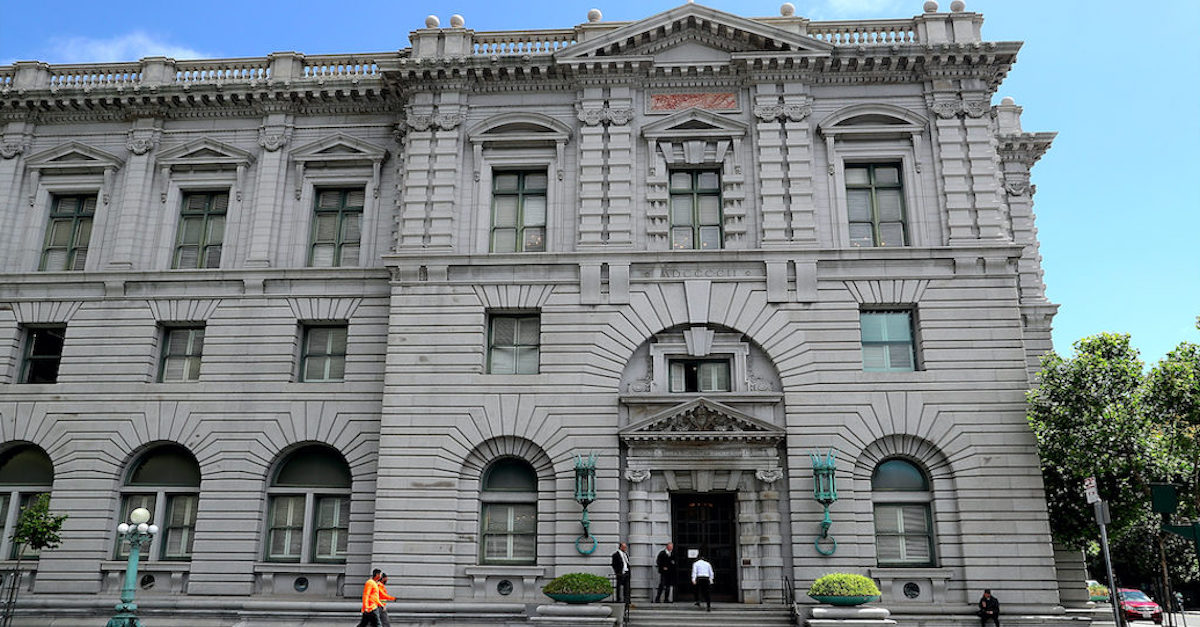
Ninth Circuit Court of Appeals
The U.S. Court of Appeals for the Ninth Circuit overturned a first-degree murder conviction on Monday in a ruling that will remind prosecutors to be extra careful with their words during closing arguments.
The three-judge panel of the Ninth Circuit reversed the district court’s denial of Keith Ford’s habeas corpus petition; now, the case has been remanded with instructions that the lower court conditionally grant the writ. The underlying problem with Ford’s conviction was a major mistake by the prosecutor who, during closing arguments, repeatedly told the jury that the presumption of innocence no longer applied.
In August 2010, Ford was charged with first-degree murder and three related firearms charges for the shooting death of Ruben Martinez. Martinez had been killed by a single shot to the head in a drive-by shooting in Vallejo, California. Ford was tried in the California Superior Court for Solano County in August 2012.
During closing arguments, Ford’s lawyer pointed out weaknesses in the prosecution’s case regarding the identity of the killer. She argued that the fingerprint identification was unreliable, that Ford didn’t match the physical description given by witnesses, and that in a recorded phone call between Ford and his girlfriend, he said, “thank God I didn’t kill anyone.”
In the prosecutor’s rebuttal during closing arguments, he said to the jury:
“This idea of this presumption of innocence is over. Mr. Ford had a fair trial. We were here for three weeks where . . . he gets to cross-examine witnesses; also an opportunity to present evidence information through his lawyer. He had a fair trial. This system is not perfect, but he had a fair opportunity and a fair trial. He’s not presumed innocent anymore.”
Predictably, Ford’s defense attorney objected, arguing, “That misstates the law.” The district judge overruled the objection. But the prosecutor kept going, saying again, “And so we’re past that point.”
The jury deliberated for three days. First, it reported a hopeless deadlock, then after another few days of deliberations, it returned a guilty verdict on the Murder One charge, but a deadlock on the firearms charges. As a result, the court declared a mistrial on the firearms charges.
Two of the three appellate judges – Bill Clinton-appointees William A. Fletcher and Donald W. Molloy, ruled in Ford’s favor. Judge Ryan D. Nelson – a Donald Trump-appointee, dissented. The court held that the prosecutor’s repeated statements during closing arguments that “the presumption of innocence no longer applied” constituted reversible error. “The jury clearly had trouble with the evidence,” wrote Judge Fletcher for the majority. “The ‘prominence’ of the prosecutor’s statements,” he continued, “could hardly have been greater.”
Although the prosecutor had “repeatedly said that the state had the burden of proof to show guilt beyond a reasonable doubt,” Fletcher wrote, that same prosecutor, “stated three times that the presumption of innocence no longer applied.” Moreover, that misstatement of law was “the last thing the jury heard from either of the attorneys.” “Although the prosecutor did not ‘misstate[] the evidence,’” wrote the circuit judge, “he misstated the law. He did so three times, in the space of a few moments.”
Calling this a “thin, circumstantial case,” the court concluded that there was “a reasonable probability of a different outcome in this had the prosecutor not misstated the law.” Therefore, the prosecutor’s comments violated Ford’s due process rights.
In his dissent, Judge Nelson had a different take on the prosecutor’s statements to jurors. He argued that there was “no reasonable probability that the jury was confused about” the presumption of innocence, and that the prosecutor’s closing argument statements merely “emphasized the government had carried its burden of proving Ford’s guilt beyond a reasonable doubt.” Judge Nelson pointed to the many times over the course of closing arguments when the prosecutor did mention the state’s burden of proof, and reasoned that even if the prosecutor had made a mistake in stating the law, that mistake didn’t amount to an unfair trial for Ford.
[image via Justin Sullivan/Getty Images]